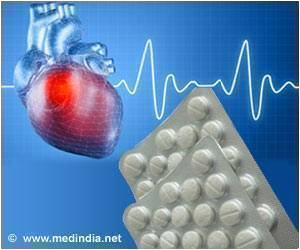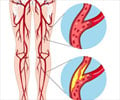Clopidogrel Medication Information
Learn everything you need to know about Clopidogrel-pronunciation, uses, dosage guidelines, indications, and when to take or avoid it.
Get up-to-date information on side effects, precautions, warnings, and proper storage to ensure safe usage.
Explore Clopidogrel brand names commonly used in India and internationally, along with detailed pricing information. Consult your healthcare provider for tailored medical advice.
Generic Name : Clopidogrel Pronunciation : kloe-PID-oh-grel ICD Code : Y44.2 Therapeutic Classification : Anticoagulants / AntithromboticsBrand Names or Trade Names of Clopidogrel
India :
Clopivas |
Noklot-CV 75 (75mg/75mg/10mg) |
Asogrel-A (75+150 mg) |
Clospir (75mg) |
Antiban -ASP (150 mg) |
Oprin |
Clofre - AS |
Noklot-CV |
Clotsafe FC |
Complatt Forte
International :
Plavix
Why is Clopidogrel Prescribed? (Indications)
This medication is an anti-platelet agent, that is, a drug that inhibits the ability of platelets to clump together as part of a blood clot. This medication is prescribed either alone or with other medications for prevention or treatment of stroke and heart attack (which are usually caused by blood clots) in persons who are at high risk.When should Clopidogrel not be taken? (Contraindications)
Contraindicated to hypersensitivity, peptic ulcer or bleeding within the skull.What is the dosage of Clopidogrel?
Oral- Prophylaxis of blood clot events- 75 mg once daily.Acute coronary syndrome For ST-elevation myocardial infarction: with aspirin: 75 mg once daily.
For unstable angina, non-ST-elevation myocardial infarction: Initial: 300 mg loading dose, followed by 75 mg once daily (with aspirin 75-325 mg once daily).
How should Clopidogrel be taken?
It comes as a tablet to take by mouth. It is usually taken once a day with or without food.What are the warnings and precautions for Clopidogrel?
•Caution needed for patients at risk of increased bleeding from trauma, surgery, or other pathological conditions; ulcer; liver and kidney impairment; history of bleeding or haemostatic disorders, pregnancy.Avoid injury or bruising while taking this medication.
It may cause dizziness, avoid driving a car or operating machinery, or other unsafe tasks.
What are the side effects of Clopidogrel?
Heart- Swelling, high blood pressure, inflammation of blood vessels.Central Nervous System- Headache, dizziness, depression, confusion.
Skin- Rash, itching, severe allergic reactions (severe rash, itching, swelling, severe dizziness, trouble breathing) Stevens-Johnson syndrome, toxic epidermal necrolysis.
Eye and ENT- Bleeding in retina, conjunctiva.
Gastrointestinal- Abdominal pain, diarrhea, stomach upset, nausea, inflammation of colon (including ulcerative or lymphocytic), inflammation of pancreas, mouth ulcer, taste disorders.
Genitourinary- Urinary tract infection, kidney disease, increased creatinine levels.
Blood- Bruising, nose bleeds, anemia, bleeding (including intracranial, GI, and retroperitoneal hemorrhage), and decrease in platelets.
Liver- Abnormality in liver enzymes, inflammation of liver.
Metabolic- Increase in cholesterol.
Musculoskeletal- Muscle pain, back pain, muscle weakness.
Respiratory- Upper respiratory tract infection, difficulty in breathing, inflammation of bronchus, stuffy nose, coughing.
Miscellaneous- Accidental injury, chest pain, influenza-like symptoms, fatigue, fainting, hypersensitivity reactions, serum sickness, bleeding of wounds.
 MEDINDIA
MEDINDIA
 Email
Email











